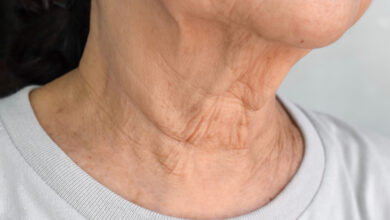Demystifying Narcolepsy: Symptoms, Diagnosis, and Treatment

Narcolepsy is a neurological disorder that affects the brain’s ability to regulate sleep-wake cycles, leading to excessive daytime sleepiness and sudden episodes of muscle weakness known as cataplexy. Despite being a relatively common condition, narcolepsy remains widely misunderstood and misdiagnosed. In this comprehensive guide, we aim to demystify narcolepsy by exploring its symptoms, diagnostic methods, various types, available treatment options, and practical lifestyle strategies for managing this condition effectively. By shedding light on the complexities of narcolepsy, we hope to provide valuable insights for individuals living with this disorder, as well as for healthcare professionals and caregivers seeking a deeper understanding of its impact.
Introduction to Narcolepsy
Hey there, sleepyheads! Let’s delve into the world of narcolepsy—a condition that can turn your sleep schedule into a wild rollercoaster ride.
Definition of Narcolepsy
Narcolepsy isn’t just feeling a bit tired; it’s like your brain hits the snooze button on a random schedule. This disorder messes with your brain’s ability to regulate sleep-wake cycles, leading to some seriously wacky sleep patterns.
Historical Perspectives on Narcolepsy
Throughout history, narcolepsy has been a puzzle for experts to unravel. From ancient times to modern research, the quest to understand and treat narcolepsy has been a journey filled with intrigue and discovery.
Understanding Narcolepsy Symptoms
Now, let’s chat about the telltale signs that might have you nodding off at the most inconvenient times.
Excessive Daytime Sleepiness
Picture this: feeling like you need a nap 24/7. People with narcolepsy battle overwhelming daytime sleepiness that can hit them like a ton of bricks, no matter how much shut-eye they got the night before.
Cataplexy Attacks
Ever had your muscles turn to jelly during a fit of laughter or excitement? That’s cataplexy for you. It’s like your body decides to play a surprise game of “musical chairs” with your muscle control.

Hypnagogic and Hypnopompic Hallucinations
Imagine vivid dream-like experiences invading your waking moments. These hallucinations can make reality feel like a trippy dream or a spooky nightmare—definitely not your average day at the office.
Sleep Paralysis
Ever felt like you’re awake but your body missed the memo? Sleep paralysis can trick your brain into thinking you’re still dreaming while your body remains stuck in sleep mode—an eerie experience, to say the least.
Diagnosing Narcolepsy
So, how do doctors figure out if you’re dealing with narcolepsy or just in dire need of a good old caffeine fix?
Medical History and Physical Examination
Your doc will dive into your sleep habits, daily routines, and family history to connect the dots. They might also run some tests to rule out other snooze-related issues and ensure narcolepsy is the true culprit.
Sleep Studies and Polysomnography
Ever wanted to be the star of your very own sleep study? Well, in this case, it might actually help unravel the mystery of your sleep woes. By monitoring your brain waves, heart rate, and breathing patterns while you snooze, a polysomnography test can offer valuable insights into your sleep patterns.
Types of Narcolepsy
Not all narcolepsy cases are created equal—let’s explore the two main varieties.
Type 1 Narcolepsy with Cataplexy
This type of narcolepsy comes with the full package deal, including excessive daytime sleepiness and those quirky cataplexy episodes. It’s like having a subscription for all the sleep-related surprises narcolepsy can throw your way.
Type 2 Narcolepsy without Cataplexy
In this version, you might skip the cataplexy side dish but still have that heavy-duty daytime sleepiness as your main course. It’s like narcolepsy lite—a bit easier on the muscle control, but still a heavy hitter in the sleep department.
So, there you have it—a crash course on the ins and outs of narcolepsy. Remember, if you’re nodding off at the most awkward times, it might be worth chatting with your healthcare provider to see if narcolepsy is the sneaky culprit behind your sleep woes. Stay awake out there, folks!
Narcolepsy Treatment Options
Pharmacological Treatments
When it comes to treating narcolepsy, medication can play a key role in managing symptoms. Doctors may prescribe stimulants to help combat excessive daytime sleepiness or medications like sodium oxybate to improve nighttime sleep quality. Finding the right balance of medications often involves trial and error, so open communication with your healthcare provider is essential.
Behavioral Therapies
In addition to medication, behavioral therapies can be beneficial for individuals with narcolepsy. Cognitive-behavioral therapy (CBT) can help address any underlying psychological factors contributing to sleep disturbances, while lifestyle adjustments and sleep hygiene practices can further enhance treatment outcomes.
Lifestyle Management for Narcolepsy
Sleep Hygiene Practices
Establishing good sleep hygiene practices is crucial for managing narcolepsy symptoms. This includes maintaining a consistent sleep schedule, creating a relaxing bedtime routine, and optimizing your sleep environment. Avoiding stimulants like caffeine close to bedtime and limiting screen time before sleep can also promote better rest.
Dietary Considerations
Diet plays a role in managing narcolepsy symptoms as well. Eating balanced meals throughout the day, staying hydrated, and avoiding heavy or large meals close to bedtime can help regulate energy levels and support better sleep quality. Some individuals find that certain foods, like those high in protein or complex carbohydrates, help sustain alertness during the day.
Coping Strategies for People with Narcolepsy
Educational and Workplace Accommodations
Navigating narcolepsy in educational and work settings may require accommodations to ensure optimal functioning. This could involve flexible scheduling, designated nap times, or access to quiet spaces for rest. Communicating openly with professors, supervisors, and human resources can help create a supportive environment.
Support Groups and Counseling
Living with narcolepsy can present unique challenges, and seeking support from others who understand your experience can be invaluable. Joining a narcolepsy support group or engaging in counseling can provide emotional support, coping strategies, and a sense of community. Sharing experiences and tips with peers can help alleviate feelings of isolation and foster resilience.In conclusion, narcolepsy is a complex yet manageable condition that requires a multidimensional approach to treatment and care. By recognizing the symptoms, seeking timely diagnosis, and exploring the appropriate interventions, individuals with narcolepsy can lead fulfilling lives with improved quality of sleep and wakefulness. Through continued research, advocacy, and awareness, we can further demystify narcolepsy and enhance support for those affected by this disorder. Let us strive to promote understanding and compassion for individuals living with narcolepsy, fostering a more inclusive and informed society.



